Dorothy Wyrick
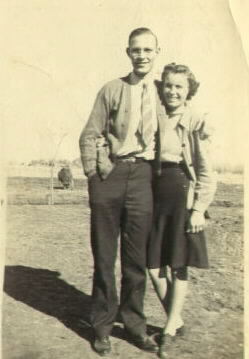
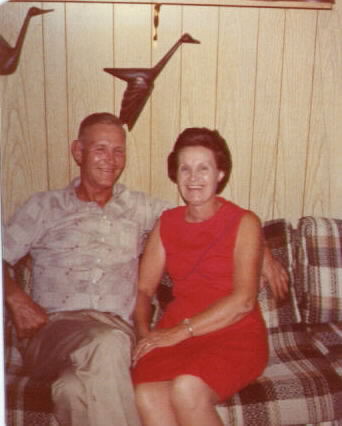
Lakehills, TX
December 7, 2002
C.J. Morrison
Palo Alto College
History 1302 - Fall 2002
INTRODUCTION
Dorothy Mae Watson was born in Sylvania, Ohio on January 29, 1926. She resided there until her family moved to Texas when she was about 10 years old. They had no choice but to move her father to a dry climate, because of doctors orders to get him out of the cold, damp weather to clear upper respiratory problems. So they chose San Antonio, Texas. Her father found work here with free room and board for their large family. Dorothy is the fourth child in her family out of nine, eight girls and one boy. The children grew up mostly in the arms of their parents and the church. Most of the time she remembers growing up here was spent doing chores, sewing clothes, and quality time with her sisters. She met her husband, Charlie Wyrick, 60 years ago on a blind date. They got married in the early part of 1942 and had quite an engagement. Charlie and Dorothy were stuck in a situtation where if she didn't marry him, he would not be able to come see her anymore. He worked in the Civil Service where he was stationed in Baton Rouge, Lousiana, and he wanted her to come see him sometime. They only way this would be possible is if they were married. After long waiting, they were married on the same Saturday that Charlie asked her parents for permission to marry her. She has four children of her own and seven grandchildren. Now in their late seventies, Dorothy and Charlie live in Lakehills, Texas, which is close to Medina Lake. She has been a friend of mine for the past couple of years. I have attended her huge family reunions and countless other family get-togethers. She is an amazing woman, mother, wife and friend. Dorothy will enlighten us with her story of the trip her family took from Ohio to Texas.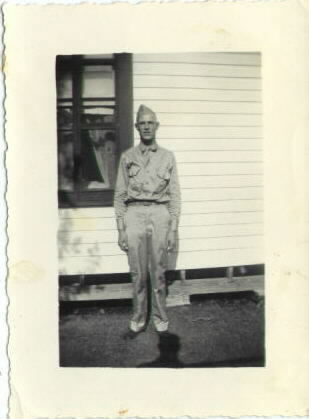
TRANSCRIPTION
Why did you, your family, decide to come to Texas?
Daddy's health, doctor said he need to get to a dry climate, either Arizona or Texas.
How did you manage to leave everything, what were some things that you would have taken if you could?
Really was nothing that I could remember, we went just a little way the first day and the trailer broke down. We had to stop to at my aunt's house and leave some canned goods.
We left some books and stuff like that, to lighten the trailer, because it was too much weight.
Did you experience any hostile towns, people, or animals?
No, we stayed in the camps and everybody was real nice. Some of the camps were nicer than others but everyone was always real nice.
How and when did you sleep?
Daddy had built in the trailer bunks across the back, we slept there or in the car, cause there were so many of us. Sometimes we would have to sleep two or three to a bed.
Did you go to church?
Yep, we went to church every Sunday. We traveled during the week Monday through Friday. Saturday was cooking and cleaning day. Daddy would go out on Saturday and find a chruch. We always
went to the Christian Church. It was different in the South, cause we went to the Church of Christ up in Ohio, but they didn't have music in the South. The Christian Church was like the churches in the north.
Did you have playtime?
Yes, not a lot but we were traveling. Mostly we had chores we had to do. We would play with each other.
Did you have to stop and make any money?
No, Daddy had saved money.
Was there anything that you liked about traveling?
It was just a big fasination of seeing different parts of the country.
Was there anything that you disliked about traveling?
No, not really, cause we still like to travel. Always something new to see.
What were your hardships like?
Nobody had any money and everyone lived like they could. They accepted it, and moved on.
Did you experience any of the effects of the Dust Bowl?
No, but I heard about it. It never did affect us.
Was there any "life lessons" that you learned and that you now keep with you years later?
You just get along with everybody. There were so many of us you just had to get along with everyone.
Was traveling during the Great Depression era hard or did you even experience the effects?
You really don't notice it. Everybody is in the same boat that you are in. You didn't know any different. It didn't bother you.
Things could have been easier but it didn't really bother us.
>When you arrived in Texas was it anything like you imagined?
Daddy had built some seats in the trailer over the wheels, and I remember looking out the window
and seeing a license plate Texas. I remember they're going where we're comin'. Relatives thought it was going to be cowboys and Indians. Dry, barren country, was expected. There wasn't close towns
like up North.
Do you have anyting to add?
I never regretted moving to Texas. I never did miss the weather up North.
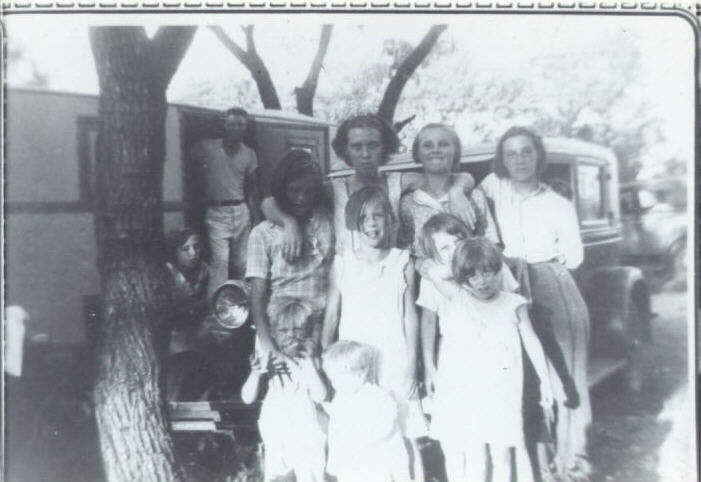
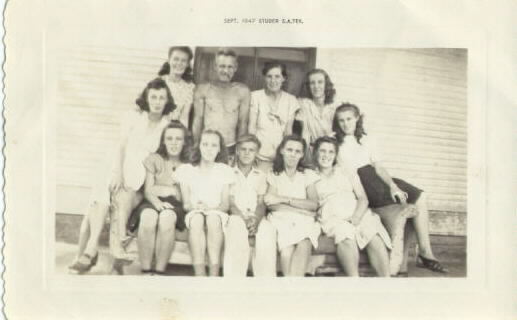
ANALYSIS
Before this interview, I didn't know how interesting a long hard trip, miles away, through a bad time in our countries history, could be so rewarding. Her family is as close today as it was back then. Dorothy and her siblings learned to cope with diffulties when they were very young, and accepted life as it came to them. Dorothy is a very strong person today, and I think that the experience that they had when she was young helped make her the person she is today.ANNOTATED BIBLIOGRAPHY
Medina Lake: The Edwards Aquifer Home Page. This page gives us some background of the lake and the history of the dam. ) Copyright (1995-2002) by Gregg Eckhardt
Lakehills, Texas: The Texas handbook online. Here you will find a breif discription of Lakehills and the directions where it is in Texas. Copyright ), The Texas State Historical Association, 1997-2002
Civil Service: History of the Civil Service, from the dynasites to the present. The Columbia Electronic Encyclopedia Copyright ) 1994, 2000, Columbia University Press. Licensed from Columbia University Press. All rights reserved.